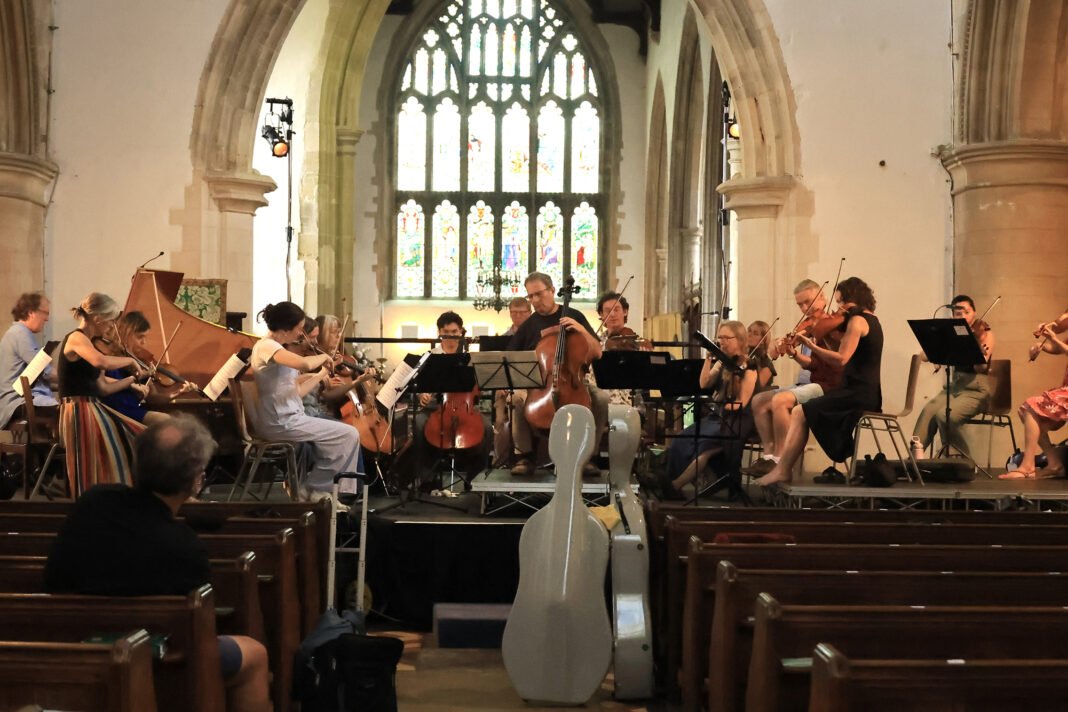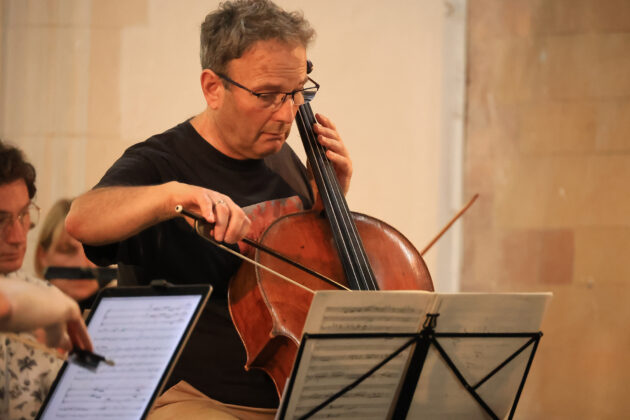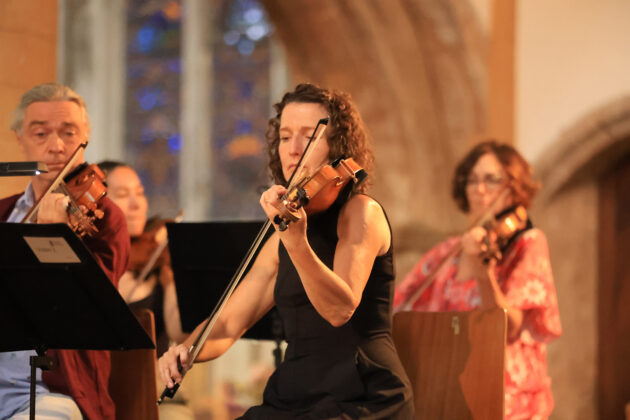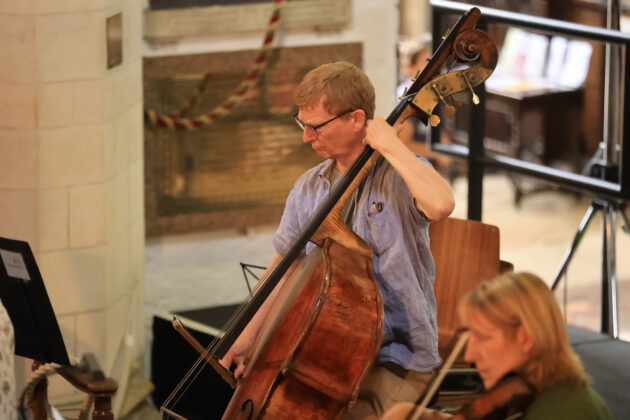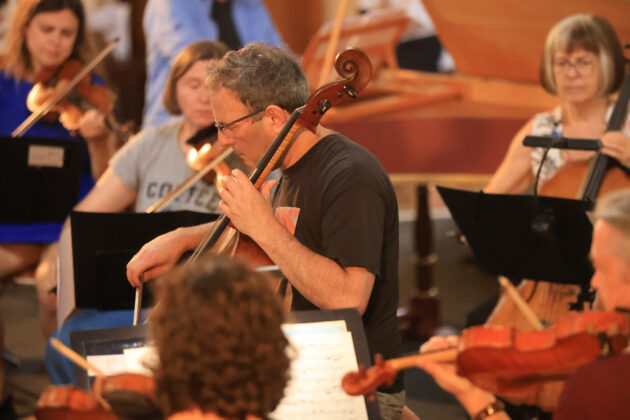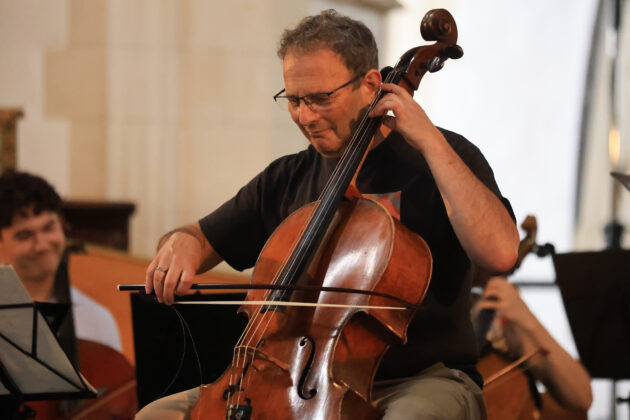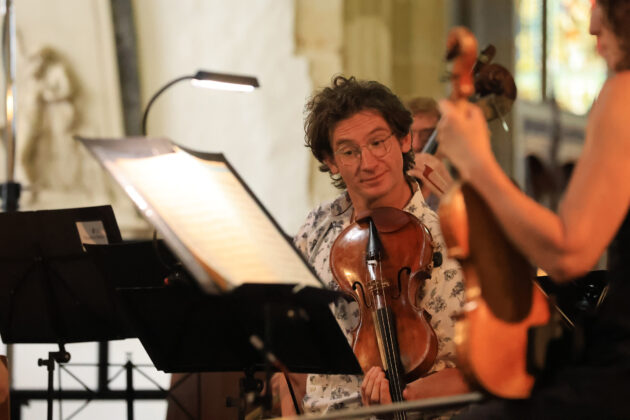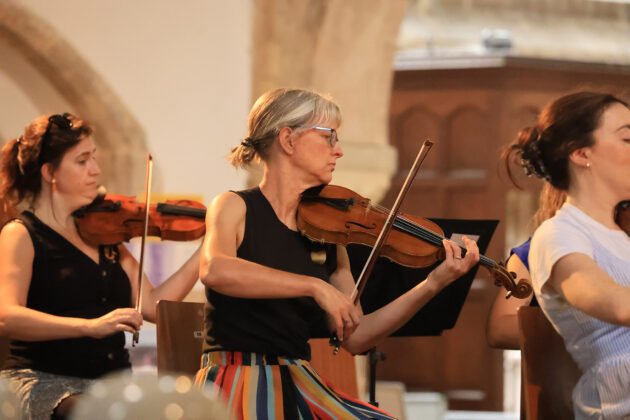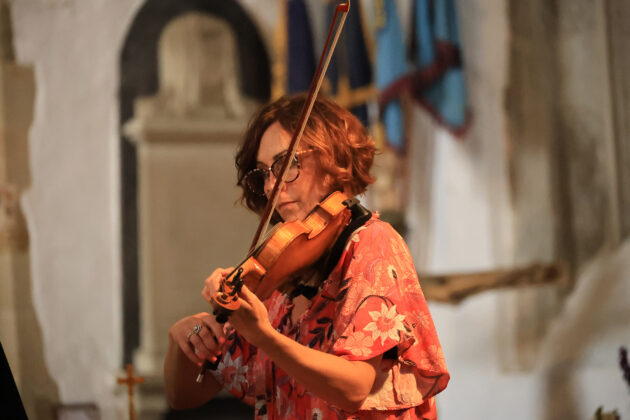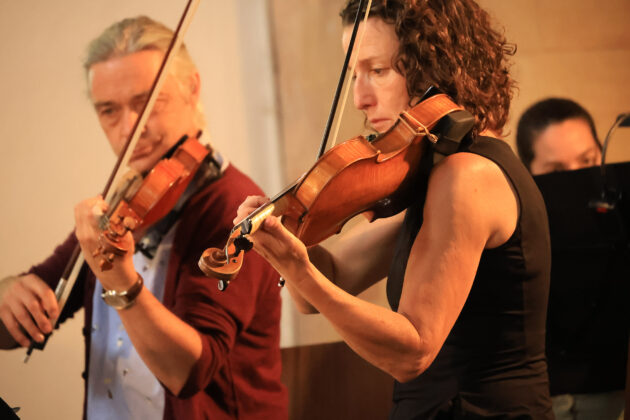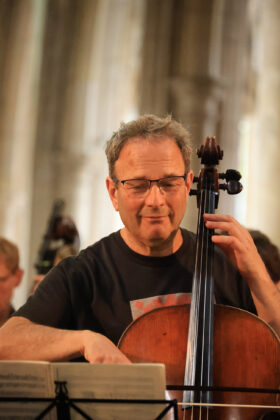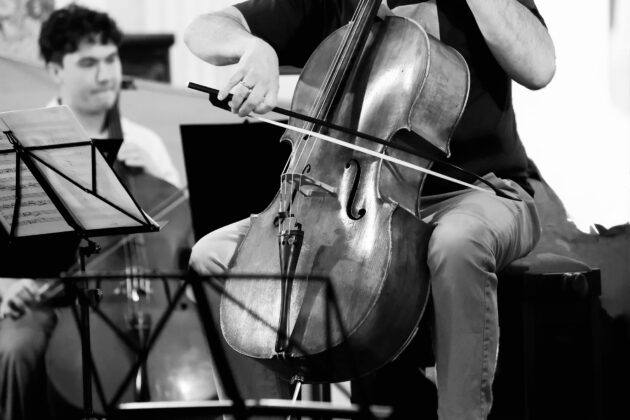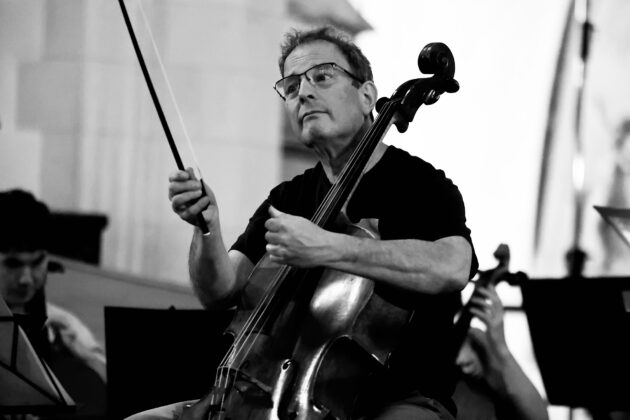A few days before the start of the Peasmarsh Chamber Music Festival 2025, the England
cricket team defeated its opponents from India by taking on another thrilling run-chase for victory. Next day, one headline read: “Miracle Men Do It Again”. The Test match took five days; the festival, a week or so later, only four and its fully mixed team of players created at least a miracle every day, sometimes more, and miracles of the most varied kind, which the festival, during its more than quarter-century existence, has become renowned for.
Would you like a helping of very light early Beethoven, followed by some brilliant Lumas
Winds playing of Poulenc and topped off by an astoundingly accomplished Korngold piano quintet, now thought to be far “more gold than corn”, with John Myerscough (cello) proving himself the pizzicato King of Sussex? The opening concert of the Festival in Peasamrsh Church on the evening of June 26 will provide all of that.
Perhaps you seek the joyous experience of hearing songs on a specified theme and composed in a single day by groups from half-a-dozen local primary schools? St Mary’s, Rye, on the second day in early afternoon, is the place to be, with the inimitable Sam Glazer and the superlative Tara Franks in charge and Lumas Winds, looking scarcely older than primary school children themselves, providing invaluable support.
The evening of the second day, June 27, again in St Mary’s Rye, gave us the astonishing musicality and precision of the Britten Sinfonia, who play without a conductor but can present, with soloists, a C.P.E.Bach cello concerto, Shostakovich’s Chamber Symphony, Steven Mackey’s explosive, puzzling but intriguing Four Iconoclastic Episodes and Tchaikovsky’s Serenade opus 48 in unforgettably stylish interpretations.
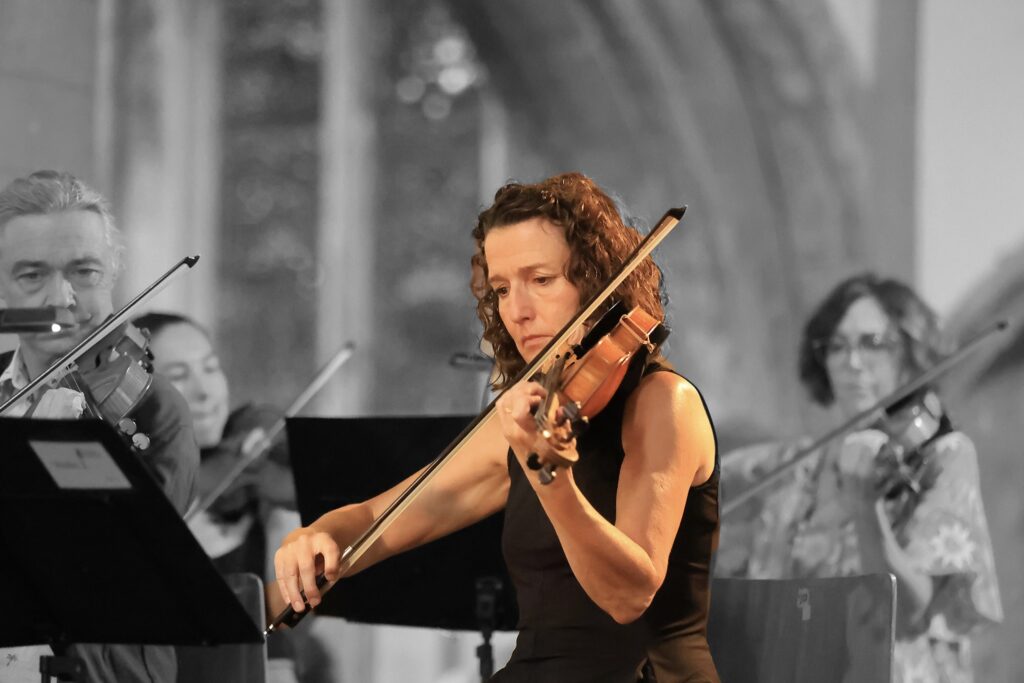
The pace is increasing and we are now on the Saturday morning, June 28 and back in
Peasmarsh Church with Lumas Winds making Ligeti’s Six Bagatelles not simply acceptable but a joy. This is succeeded by Julian Chan and John Myerscough presenting Janacek’s Pohadka (Fairy Tale) in the most convincing way and the concert concludes with Mendelssohn’s magnificent second piano trio, the miracle workers on this occasion being Grace Park (violin), Shai Wosner (piano) and John Myerscough (cello).
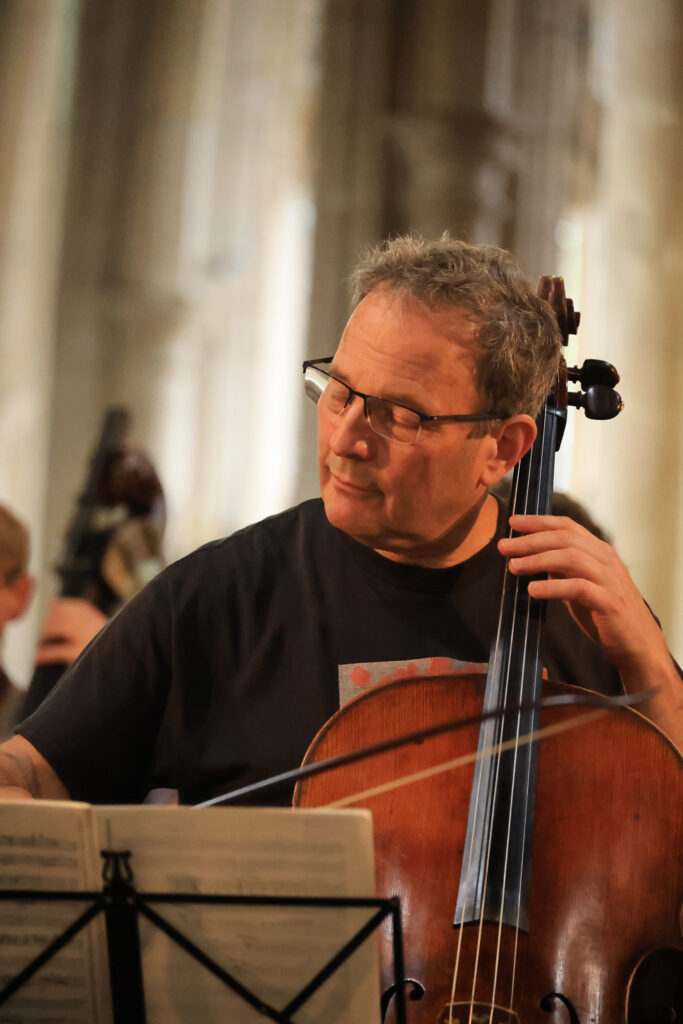
Early evening on Saturday and Julian Chan and Shai Wosner enthrall us all with their piano duet performance of Ravel’s Ma Mere L’Oye before Steven Mackey’s The Ancestors succeeds it and proves itself less explosive than Friday’s Episodes but equally puzzling and intriguing, with guests Grace Park (violin) and Helene Clement (viola) featuring strongly. Oliver Knussen’s Little Fantasies are, indeed, fantastical and Faure’s mighty second piano quartet provides a fittingly grand end before food and a rest for all precede late night Beethoven, his Septet with the recently-arrived Philip Nelson (double-bass).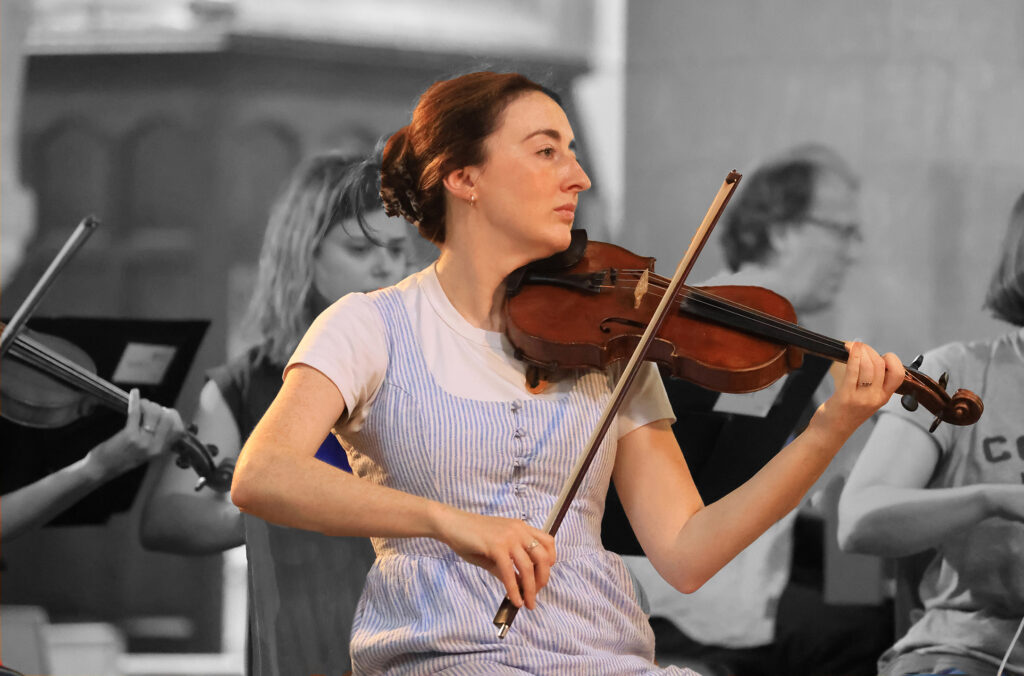
We are now well past half-way with many miracles created and experienced and Sunday
morning, June 29 finds us unsure as to where the first three days went, and with an almost entirely Mozart seventh concert which begins with a newly discovered piece by the teenage genius and, most powerful, one of his most beautiful violin and piano sonatas in A major, as well as Weber’s beautiful flute, piano and cello trio in G minor. The newly discovered piece certainly sounds authentic to my non-expert ears and the A major, miraculously played by Grace Park and Julian Chan, is a masterly transformation of a formerly lowly regarded combination to the level of a masterpiece. In the Weber, Beth Stone (flute) and Julian Chan (piano) excelled and, as often at the festival, the experience of a seeing a highly experienced player, in this case Richard Lester, playing with those at the beginning of their careers was a treat.
I was sorry to have to miss the Meet the Composer session, as the works by Steven Mackey that we’d heard were clearly of great interest but we were speedily on to the final evening concert (where did the first three days go?). We could enjoy a very much shortened Till Eulenspiegel’s Merry Pranks followed by Clara Schumann’s Three Romances, replacing the Rebecca Clarke piece Morpheus at short notice. Julian Chan then gave us a very cleverly characterised interpretation of the solo piano sonatina by Rudi Martinus van Dijk, a composer very closely associated with the festival and buried in Peasmarsh churchyard. A lateish and, to me, difficult but sparely sublime cello and piano sonata opus 102 No.2 by Beethoven preceded a short interval and the whole festival was brought to a magnificent conclusion by Anthony Marwood (violin), Shai Wosner (piano) and the indefatigable John Myerscough (cello) in a vivid performance of Dvorak’s Piano Trio in F minor.
I hope I’ve left no one out but I apologise if I have omitted anyone who contributed to what has been, as we always say, the best festival yet. Brought together by the wondrous skills of co-directors Anthony Marwood and Richard Lester and supported by a wonderfully dedicated team of helpers marshalled by Anna Rowe, the miracle-workers are now off, after a rest we hope, to other parts of the country and of the world taking their miraculous skills with them to enthral and inspire anew. In its unique setting, the Peasmarsh Chamber Music Festival has once again ensured for its audiences indelible memories of the miracle that is music.
Image Credits: Kt bruce .



